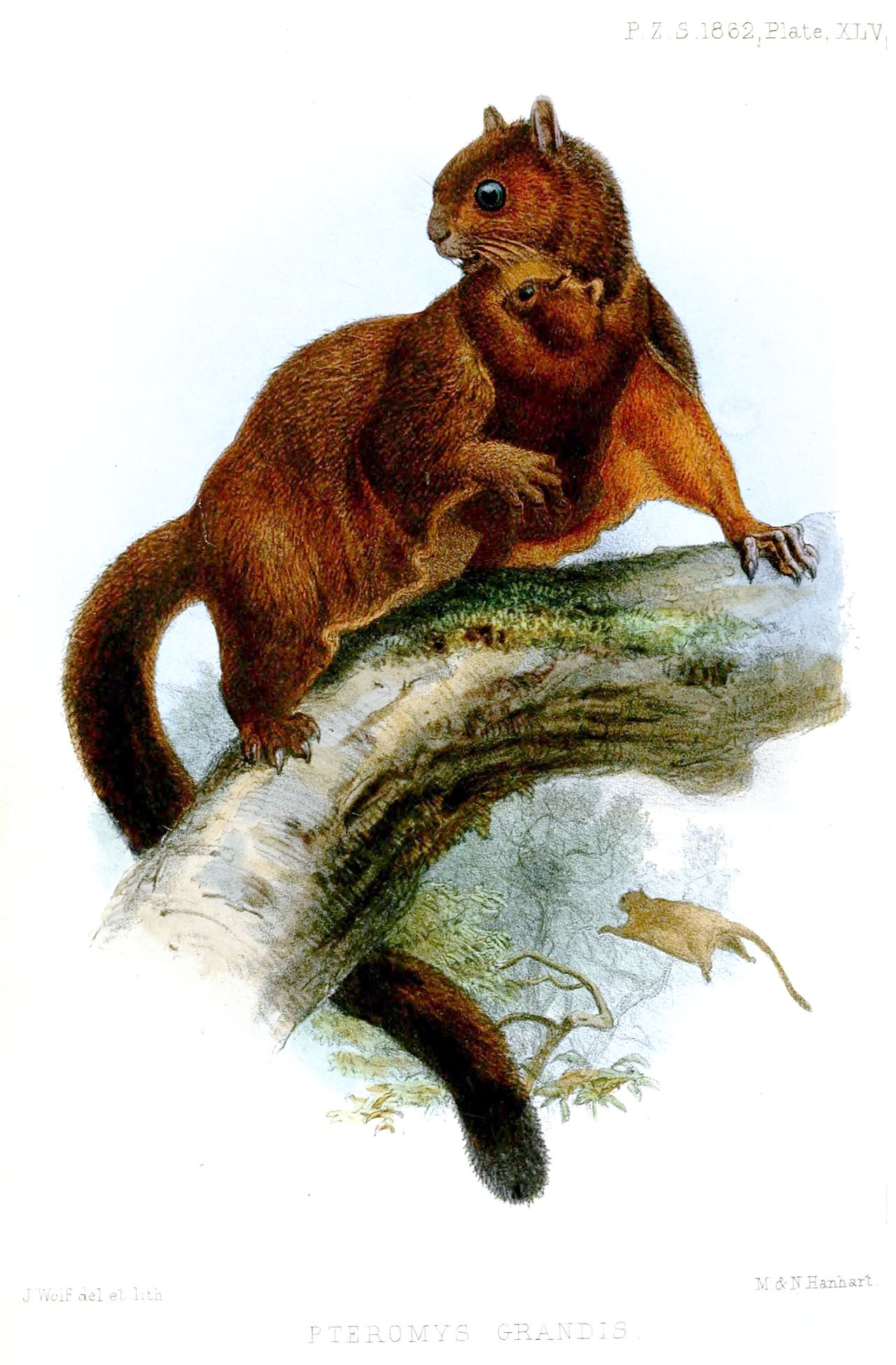Sharp Joy: The Spirit Who Landed on My Shoulder
A memory of Taiwan, a flying squirrel named Dancer, and lessons never forgotten—even when they bleeding.
Some beings enter your life so completely they never really leave. Not in memory, not in body. They stay—etched in breath, in bone, in the space over your shoulder where they once sat.
When people think of flying squirrels, they imagine sugar gliders. Small. Palmed. Cute. Gentle arcs from the top of a bookshelf to a waiting hand. Soft, safe.
But not Petaurista grandis.
Not the Giant Formosan Flying Squirrel.
Petaurista—the genus that holds Asia’s gliders.
Grandis—because it is. Great, in both size and presence.
Their tails can reach 2.5 feet—about 760 millimeters. Bodies stretch another 1.5 feet, sometimes more. A full adult can span four feet from head to tail. Silent. Weightless. And then, suddenly, there—on your shoulder. Like a spirit. Like a decision already made.
We rescued one, still kit-small. I never knew her exact age. Just that she needed bottle feedings. Every two hours. For over six months. She should’ve been weaned by three—but she wasn’t ready. So we kept feeding. And she kept staying.
We called her Dancer. I don’t remember why.
She lived three years. Maybe a stroke. It was sudden. They usually live longer—twelve to fifteen years in captivity. But not this one. Not ours.
They had their ritual—playing from just before sunrise to just after, always at dawn. We’d wake to the sound of them—gliding, chasing, pouncing, the cat thudding upstairs, the squirrel vanishing down the hallway like a gust of wind. And then, silence. We’d find her later, tucked into her box, lined with old blankets, sound asleep. She slept so deeply during the day it was hard to wake her. Like a creature who trusted the world to hold her until dusk.
And for those three years, we lived with something not quite wild and not quite tame. Something that played rough, and didn’t understand that play could hurt. Her bites—sharp, playful, blood-drawing—weren’t malice. Just... enthusiasm. We weren’t squirrels. We didn’t have the coat for it. The cat did. The cat understood.
They became inseparable.
The kitten was eight weeks old when Dancer claimed him. They chased each other through the house—over railings, down stairs, along banisters. Sometimes the cat would pause, watching as the squirrel launched into a glide, vanishing around a corner. The cat never followed. He knew better.
There are stories, still whispered, among Taiwan’s Indigenous communities. About these creatures. Their silence. Their size. Their presence. They are hunted. Respected. Not everyone can take one. Not everyone should. Older people speak of their intestines as delicacies—roasted unwashed, because they “eat cleanly.” Fruit and flowers. Nothing spoiled. Their bodies are already pure.
When we told an older friend’s mother we had one as a pet, she offered to send up a pair—cleaned and dressed, ready to cook. She thought we were insane.
She wasn’t wrong.
Because sharing a home with one is madness. Beautiful, bleeding madness.
We all wore bathrobes at night. We called them squirrel armor. You didn’t step into the hallway without protection. You might get swooped. Landed on. Grabbed. You might bleed.
But you’d also laugh.
The morning she died, the cat knew before we did. He ran into the bedroom, howling. We followed him to the bathroom and found her there—collapsed on the tile, just past sunrise. Their play had ended, and she hadn’t made it back to her box. We picked her up. We brought her to bed.
And we locked the cat out.
I have regretted that ever since.
He came in later, after. Found her body. Touched her gently. Looked at us. Lost something.
Since then, I’ve never locked an animal out again. When a companion is dying, and another companion knows it—let them stay. Let them say goodbye.
After twenty years, I’ve begun mapping my body in ink. The first piece has already been done. The next will be Dancer.
She’ll be placed on my shoulder, where she always landed. Drawn in brushstrokes, like memory in motion. Silent, vast, alive.
She is part of Taiwan for me. Part of what it meant to come of age there. Part of what it meant to be accepted by people who thought it was wild that I would live with one of these near-mythic animals. But they also understood.
They’d say, “You really kept one?” And they’d shake their heads. But there was always a kind of respect in it. A knowing.
She wasn’t tame. She was joy made physical. Dangerous, affectionate, obsessed with oranges. Too big to be forgotten. Too alive to ever be owned.
Years later, we had another cat. She caught a pigeon, and was about to kill it. But the cat who had grown up with Dancer charged her. Forced her to release it. Saved the bird.
The squirrel taught the cat kindness.
And the cat remembered.




